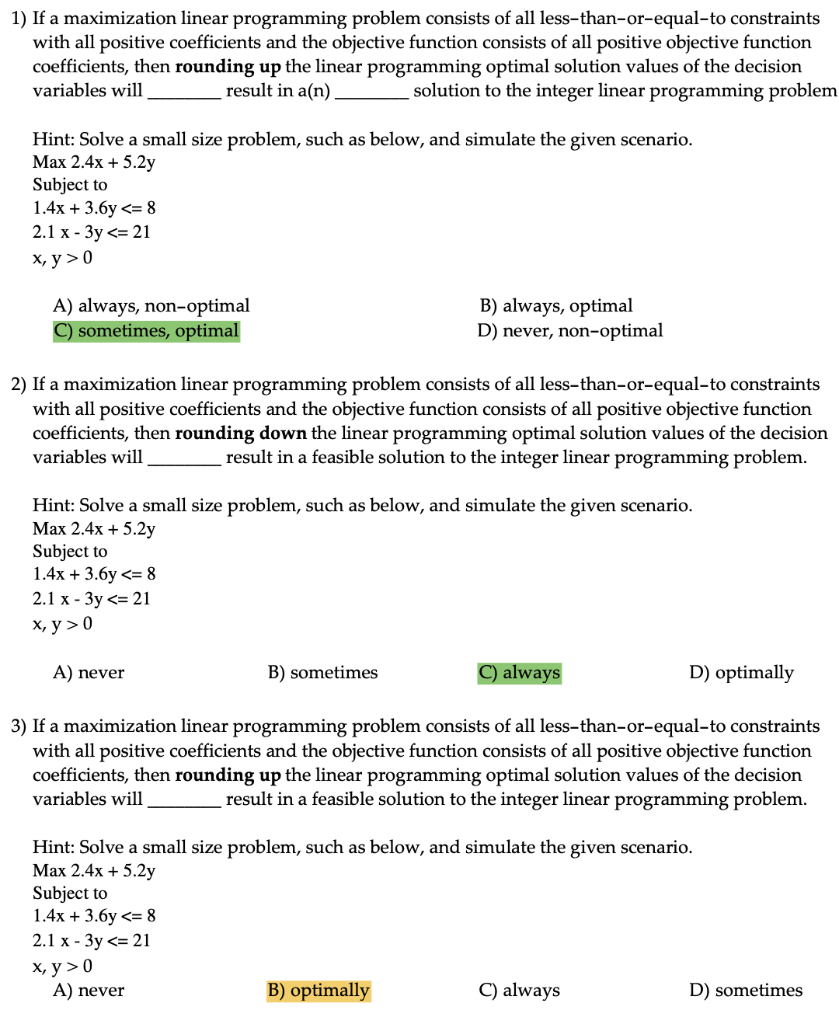Home /
Expert Answers /
Statistics and Probability /
1-if-a-maximization-linear-programming-problem-consists-of-all-less-than-or-equal-to-constraints-pa694
(Solved): 1) If a maximization linear programming problem consists of all less-than-or-equal-to constraints ...
1) If a maximization linear programming problem consists of all less-than-or-equal-to constraints with all positive coefficients and the objective function consists of all positive objective function coefficients, then rounding up the linear programming optimal solution values of the decision variables will result in a(n) solution to the integer linear programming problem Hint: Solve a small size problem, such as below, and simulate the given scenario. Subject to A) always, non-optimal B) always, optimal C) sometimes, optimal D) never, non-optimal 2) If a maximization linear programming problem consists of all less-than-or-equal-to constraints with all positive coefficients and the objective function consists of all positive objective function coefficients, then rounding down the linear programming optimal solution values of the decision variables will result in a feasible solution to the integer linear programming problem. Hint: Solve a small size problem, such as below, and simulate the given scenario. Subject to A) never B) sometimes D) optimally 3) If a maximization linear programming problem consists of all less-than-or-equal-to constraints with all positive coefficients and the objective function consists of all positive objective function coefficients, then rounding up the linear programming optimal solution values of the decision variables will result in a feasible solution to the integer linear programming problem. Hint: Solve a small size problem, such as below, and simulate the given scenario. Subject to A) never B) optimally C) always D) sometimes
Expert Answer
Solution:If a maximization linear programming problem consists of allless- than-or-equal-to constraints with all positive coefficientsand the objectiv
